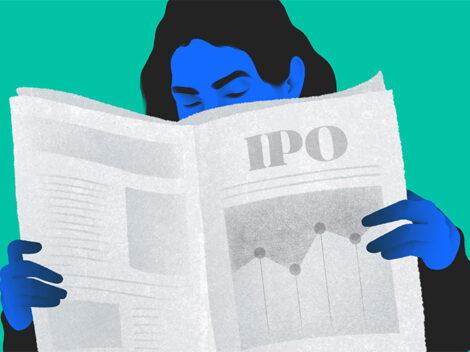OYO, the India-based hotel unicorn has made news over the past week for two reasons. First, it’s moving into the coworking space that has proved lucrative for giants like WeWork. And second, the company’s founder is boosting his stake in the firm, giving us a new form of secondary to consider.
Subscribe to the Crunchbase Daily
If you recall our recent work regarding The We Company — better known by its former name WeWork — you can see where we’re going with this. But let’s not get ahead of ourselves.
OYO’s New Valuation
Crunchbase News first covered OYO, an Indian company building low-cost hotels around the world, in September of 2018 when the Vision Fund dropped $1 billion into the company. Noting that normally “hospitality is a bit afar from the world of high-growth startups and their attendant sectors and investors,” we were surprised at the scale of capital that OYO was putting to work.
A company working to invest $1 billion in growth capital is very much our jam, meaning that OYO has been on our radar since that key investment.
And we’re not the only folks with one eye on the rocketship hotel-focused startup. The firm has raised three primary rounds since, including a $100 million deal with Grab, a $100 million deal with several groups including Didi, and a $75 million investment from Airbnb.
As you can see, a number of platform-aspirant companies (ride-hailing apps all want to become super apps, and Airbnb describes itself as a “people-to-people platform”) are putting cash into OYO as it looks like a future partner and integration mark.
Having some of the most highly-valued private companies in the world line up to put money into your growth-oriented business is a mark of confidence. As such, we can presume that OYO’s growth rates are very high. I’d also toss in that the company is probably pretty unprofitable today; recall how Luckin’s insane build-out translated to sharp deficits as it grew.
All this money and optimism brings us to today’s news. Here’s how the Wall Street Journal described the impending $2 billion transaction that will reprice OYO far above its prior worth:
Oyo Chief Executive Ritesh Agarwal is buying part of the shareholdings of early investors Sequoia Capital and Lightspeed Venture Partners. The buyback, which is still subject to shareholder and regulatory approvals, will be through a Cayman Islands company called RA Hospitality Holdings, and financed by institutional banks and finance partners, the company said.
The secondary transaction gives OYO a shiny new $10 billion valuation, pushing the hotel chain into the decacorn range, and making it part of a far more elite club than its prior unicorn horn society.
Secondaries, Redux
News last week informed the world that WeWork’s founder Adam Neumann has sold or borrowed against a piece of his stake in his own firm. It wasn’t the best timing for the company, which is both looking for additional debt capital and an IPO.
But, as with all things, if WeWork’s S-1 drops and shows solid growth and paring losses, no one will care what Neumann did before the numbers were shared; that ‘growth cures all ills’ is a market adage is no accident.
But what did catch my eye is that in the case of OYO, we’re seeing a founder work to recapture share in his company, instead of potentially reducing their exposure. It seems tonally important.
In the venture capital world, you’ll often here about “signaling.” Perhaps “signaling risk” is a better way to phrase it. There were, once upon a time, a set of unwritten rules in venture regarding what various moves would “signal” to the market. For example, if you raised a round from Billy Bob Capital, and then raised your next round from Billy Bob Capital, that was read as a “signal” that you couldn’t find a new lead investor for the new capital event.
In 2019 all that action might indicate is that Billy Bob Capital was desperate to double-down on the deal to fend off dilution by preempting the round before someone else could swoop in. So, things have changed.
But no matter what has changed in the world of venture, seeing a founder seek to control more of their company while it is in hyper-growth mode is pretty bullish I reckon. We’ll see a WeWork S-1 before we see a similar filing from OYO, but the former will inform the latter.
And given that OYO is taking baby steps towards WeWork’s bread and butter, this is all going to get even more interesting.
Illustration: Li-Anne Dias.

Stay up to date with recent funding rounds, acquisitions, and more with the Crunchbase Daily.










![Illustration of pandemic pet pampering. [Dom Guzman]](https://news.crunchbase.com/wp-content/uploads/2021/03/Pets-2-300x168.jpg)
67.1K Followers